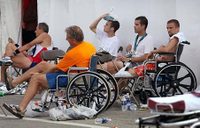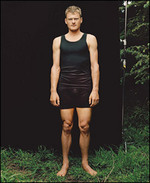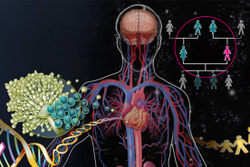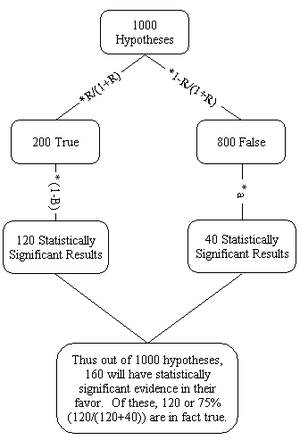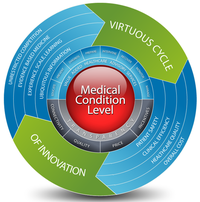Some days it seems I need to search high and low for good blog fodder. On other days, the story seems to write itself.
Yesterday became one of those days when I clicked on the NEJM RSS feed in my reader. An article about the care and treatment of hip OA by Dr. Nancy Lane, was one of the new articles in this month’s issue of the New England Journal of Medicine. The editors obviously thought highly of the piece, because they attached continuing education credits for reading it if you were to take the following quiz. I was excited to see the medical community take a step toward reconciling their lack of musculoskeletal competence, however small, with this article.
The piece started off normally, with examination and interpretation of findings, but as the article progressed to treatment I found something sorely lacking. The physician writing the piece kind of skipped right over any details about a physical therapy intervention for this patient. Recommended were meds, an education program, and an aquatic exercise program. It wasn’t until the final conclusions that the term "physical therapy" actually makes an appearance and the term "joint mobilizations" was absent altogether. Dr. Lane did include acupuncture and "periodic telephone-support interventions by lay personnel" as treatments with supportive evidence, however.
A recent editorial in JOSPT (Journal of Orthopaedic and Sports Physical Therapy) thinks quite differently about how to treat an arthritic hip. In "First-Line Interventions for Hip Pain: Is It Surgery, Drugs, or Us?" Wainner and Whitman discuss exactly the patient population which the NEJM article presents. Their editorial outlines a variety of compelling evidence about the under-utilized, yet effective role physical therapists play with this patient population.
I’m not surprised that the Dr. Lane presumably had not read their editorial. After all, what motivation does a physician have to keep up with PT literature? Especially when they are so busy working as a consultant:
"Dr. Lane reports receiving consulting and lecture fees from Eli Lilly,
Merck, Procter & Gamble, Wyeth, and Roche and grant support from
Procter & Gamble, Amgen, and Rinat Neuroscience."
Which is another story in itself!
Hey, everyone’s got to make a living right? Regardless of who pays who and for what, the bottom line is that there is a standing lack of respect for Physical Therapy literature. Perhaps we speak "gibberish" to the docs, perhaps they don’t have the construct to understand manual therapy interventions, perhaps it is more of an institutionalized opinion among physicians that contributes to this oversight. Whatever the cause, I can only presume that more good evidence, from our group to theirs, can only help our cause.
Until then, I’m thinking of sending Dr. Lane an e-mail to let her know about how effective physical therapists can be with this patient population.
ERIC


